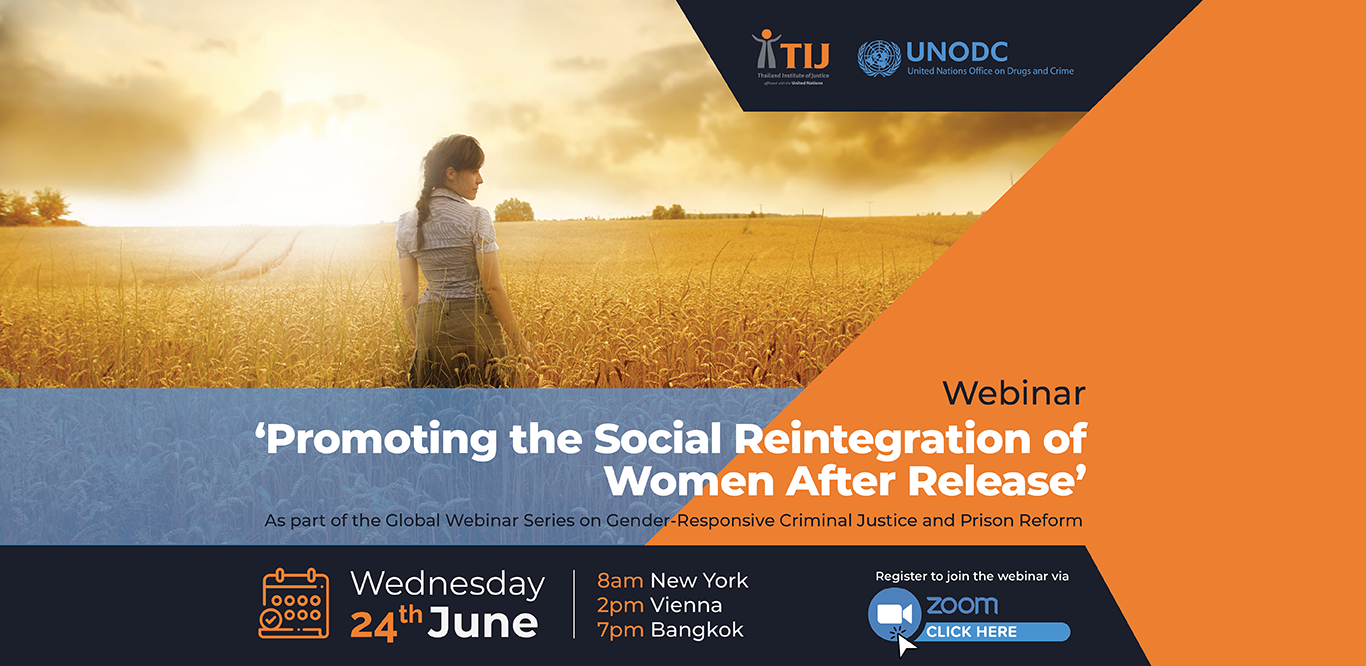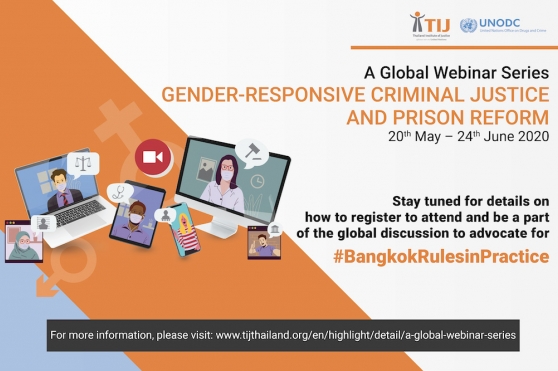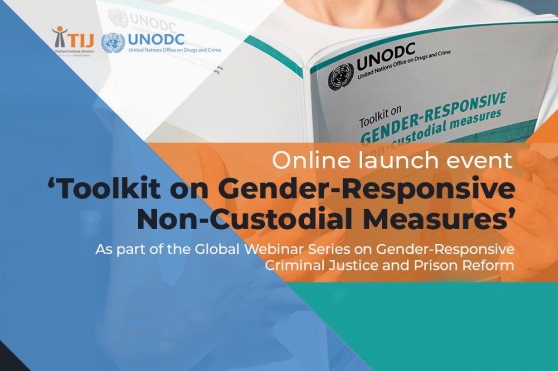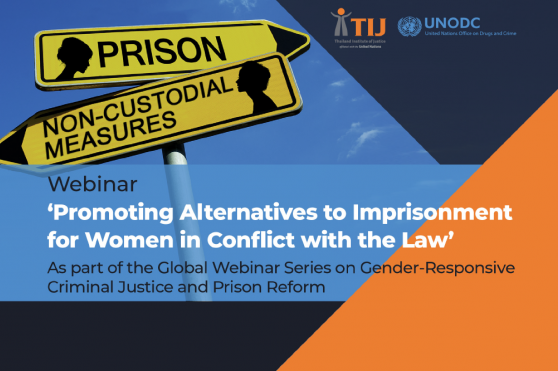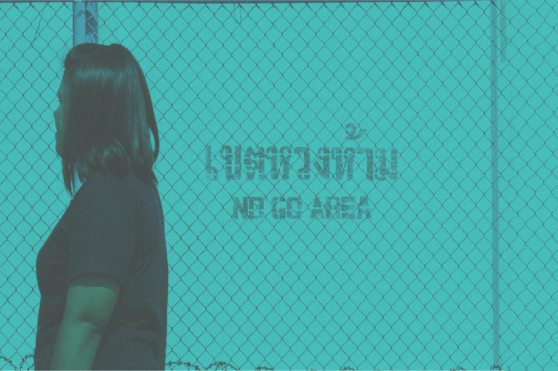Webinar summary: Promoting the Social Reintegration of Women After Release
On Wednesday, 24th June 2020, the Thailand Institute of Justice (TIJ) and the United Nations
Office on Drugs and Crime (UNODC) co-hosted a webinar on ‘Promoting the Social Reintegration of Women After Release’, as part of the final session of the ‘Global Webinar Series on Gender Responsive Criminal Justice and Prison Reform’.
With the aim to explore concrete examples of reintegration interventions for women in conflict with the law, the panelists focused on promising practices in different countries. The first panelist, Ms. Muriel Jourdan-Ethvignot, Crime Prevention and Criminal Justice Officer, UNODC provided examples of interventions including home leaves, open prisons, halfway houses and other community-based options. In Bolivia, they have started training women prisoners to work in the growing construction sector so that they develop marketable skills that help them become economically empowered. In addition, after release from prison, the women receive support from the National Association of Women Constructions Workers which helps its members find work and develop their own business.

“Individualised assessment is essential to determine the kind of treatment programmes needed for women in conflict with the law.”
- Muriel Jourdan-Ethvignot
Examples of similar interventions from Southeast Asia were provided by Mr. Rob Allen, Independent Researcher and UNODC Consultant, who conducted research on the social reintegration programmes for women prisoners in Southeast Asia. A programme by Cambodian NGO ‘This Life Cambodia’ was cited as a promising practice in maintaining family ties, as they provide financial support and transport for monthly visits for family members. In Malaysia, parole officers visit the women’s families prior to their release and visit parolees at home after release, with 24-hour support available, in case it’s needed. In Thailand, a prison-run café trains women with the skills to become a barista, allowing them to work outside prison while serving their sentence. Additionally, in some prisons, a grant is made available for prisoners to start a small business after release. For support post-release, countries like Malaysia and Thailand have halfway houses to temporarily shelter women.
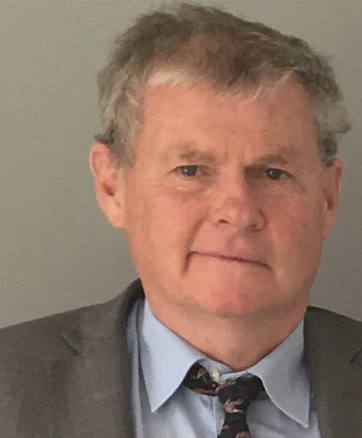
“For many women who come into prison because of their economic status, the challenge for rehabilitation and resocialization is to try and provide a realistic alternative pathway which enables women to break out of the cycle.”
- Rob Allen
More in-depth country specific examples of support services for women in conflict with the law were provided by Ms. Chontit Chuenurah, Director, Office for the Bangkok Rules and Treatment of Offenders, TIJ, Ms. Aisyah Q. Yuliani, Criminal Justice Programme Coordinator, UNODC Indonesia and Ms. Julie Mariama Sesay, Programmes Manager, AdvocAid Sierra Leone.
Ms. Chuenurah elaborated on the Social Partnership Model in Thailand, which engages multiple stakeholders in issues related to the criminal justice system. In an effort to involve the private sector, the Cabinet in Thailand has given in-principle approval to provide tax incentives to companies that hire former inmates. Additionally, a pilot pre-release programme by TIJ in a prison in Thailand brought together 50 experts from nine different groups including therapists, the private sector, social enterprises and community leaders to teach women prisoners who are about to be released important skills such as mental empowerment, money management, and career and business planning, with the aim to smoothen the transition process post-release.

“The Social Partnership Model in Thailand is designed to engage a wider group of experts and stakeholders to give women in prison extra support. This reduces the wall between people inside and people outside.”
- Ms. Chontit Chuenurah
Ms. Yuliani gave similar examples from Indonesia. UNODC is currently working with the government of Indonesia to develop specific guidelines for women inmates and is also working with the Ministry of Social Affairs in developing transitional housing for inmates who have been released from prison who don’t have a place to live or who don’t have access to other support services. Other pre-release services include psychological support (in partnership with universities and hospitals), access to healthcare, narcotics rehabilitation, vocational training and work programmes. In particular is the family support programme called “Homework with Mom”, which targets school-going children who cannot visit their mothers because visitation times clash with their school timings. For such children, this programme encourages children to visit their mothers once a week with their homework, with the aim of increasing the mother’s involvement in their child’s life and at the same time ensuring continuity in the child’s education. However, as a result of COVID-19, in-person visitation has now been replaced with video calls, using platforms such as Zoom and WhatsApp.
Experiences from Sierra Leone were given Ms. Sesay, who spoke about the Go Bifo programme run by AdvocAid that educates, empowers and helps reintegrate former detainees. Before their release, AdvocAid gets in touch with the women’s families to inform them about important dates, the pre-release plan and bail conditions (if applicable). Post-release, social workers conduct exit interviews to assess the women’s needs and also undertake monthly follow-up meetings to gauge their situation. Start-up grants are also available so that they can set up a small business. Additionally, newly released women are encouraged to join self-organised groups of women to support each other through the reintegration process.

The Q&A session which followed the panel discussion focused on questions related to the importance of drug rehabilitation and harm reduction policies, reintegration efforts during the COVID-19 pandemic, and the role of community-based volunteers in the successful reintegration of women after release.
For more information on this series, click here.
Presentation download
Ms. Muriel Jourdan-Ethvignot



